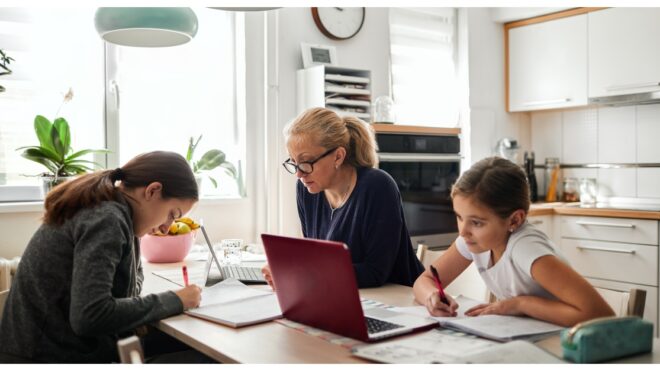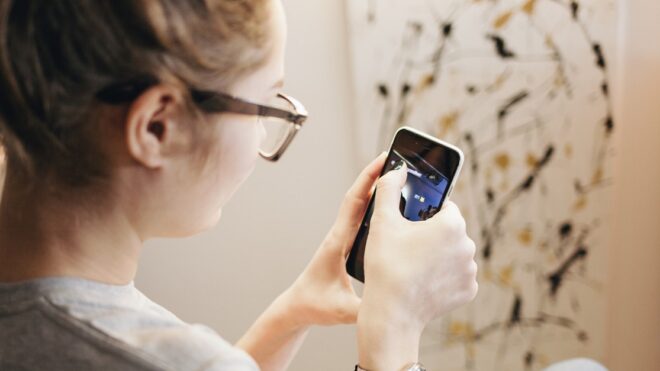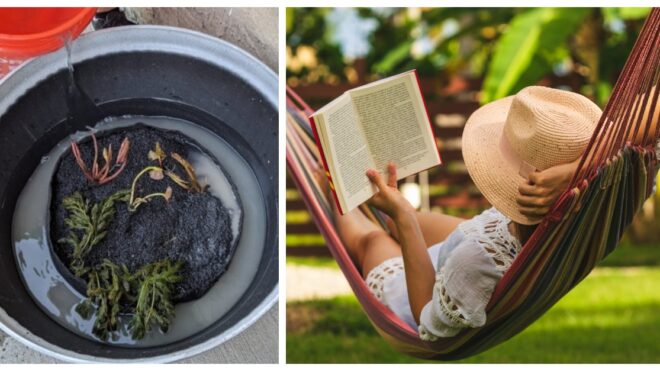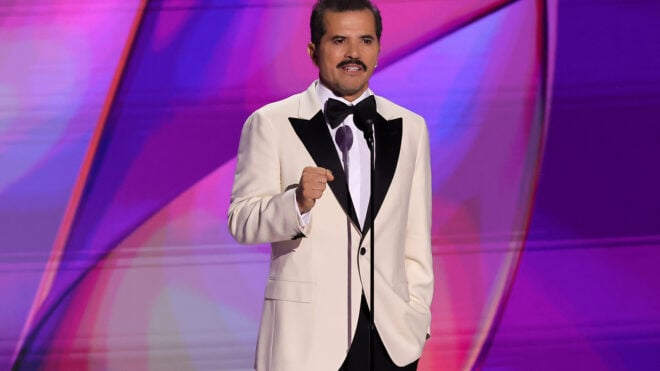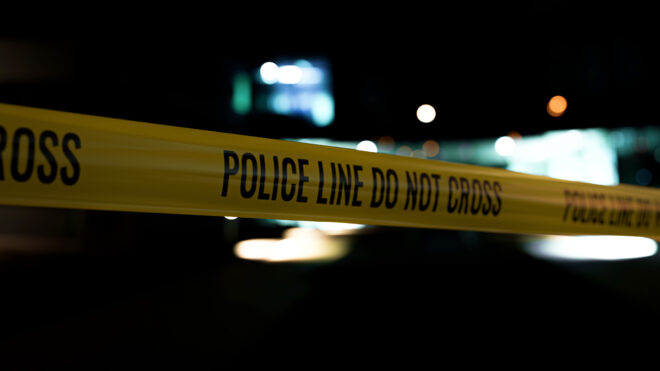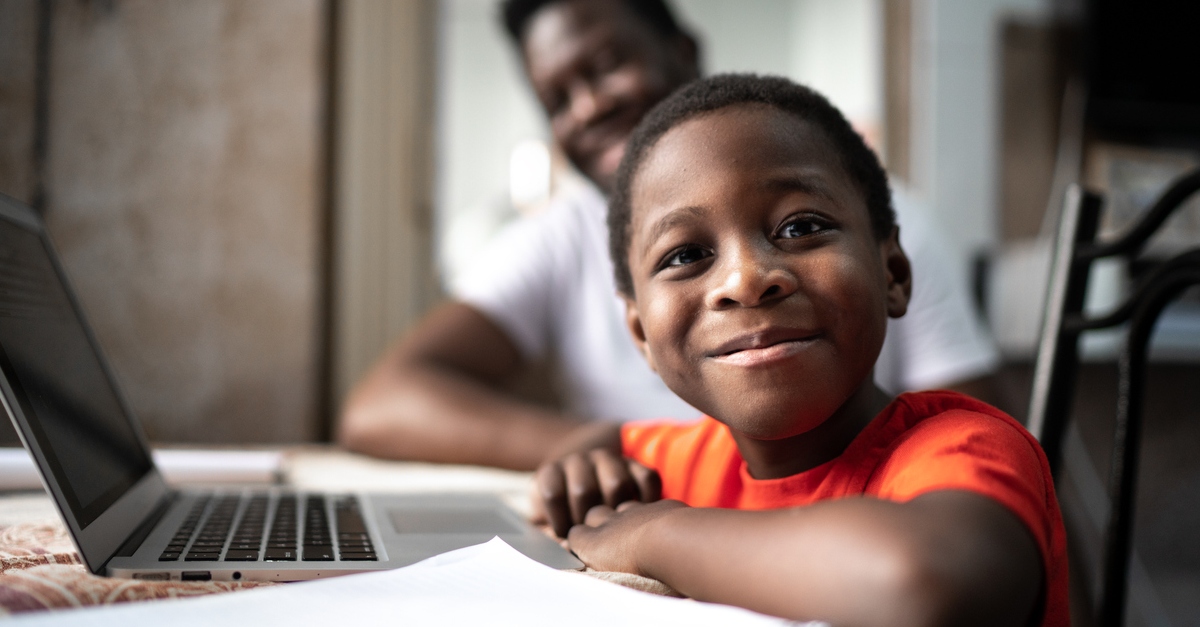
Parents are looking for a sense of community during this difficult time. Nowhere is that more clear than on Facebook with the start of Pods and MicroSchools.
More than 20 million people in the US are part of over 100,000 parenting groups on Facebook. Parents have looked to those groups more during the health crisis. 67% of people say that Facebook Groups have become more important to them since March in a recent survey.
Nikolai Pizarro de Jesus understood the power of parenting groups. After being told about a group where parents were starting to make alternative schooling plans when fall began to look uncertain, Nikolai started one of her own.
BIPOC-Led Pandemic Pods And MicroSchools aimed not only to provide educational solutions, as other similar groups did. There was an equally important objective to cater to also. They wanted to correct their children's educations in areas where a white heteronormative and patriarchal curriculum failed them.
Nikolai has been homeschooling her rising 7th grader since they experienced educational trauma in their child's time in kindergarten. She was prepared to facilitate the change for many families looking for a fresh start. Nikolai shared her story with LittleThings.
Nikolai Pizarro de Jesus went into the health crisis with one less burden than other parents had. She didn't have to worry about her children's' educations being upended. Six years ago, Nikolai and her oldest child had an experience which changed her mind on traditional schooling.
"I have a rising 7th grader who I have been homeschooling since the second part of his kindergarten year. We enrolled the first semester and withdrew," she explained.
"During his short time there, I witnessed the reality of educational trauma for young Black and Brown children. As a result, for the past 6 years, I have been assisting predominately Black and Brown parents on how to transition from conventional schooling into self-directed homeschooling."
Her experience in helping families embrace homeschooling had her thinking about the unique challenges families are facing during this time.
"Throughout the Spring and Summer, I hosted free webinars to predominately Black and Brown parents, on the opportunity to consider self-directed homeschooling over conventional unschooling this upcoming Fall," she said.
"This was not just in response to the pandemic but also the 'great racial awakening climate' post the George Floyd murder and the on-going failures of the system for Black and Brown children specifically. Almost 1000 parents enrolled, mostly BIPOC, funneled through my Instagram account @raisingreaders."
The webinar took place before the word "pod" became popular. Instead, Nikolai encouraged families to "create 'shared communities of care' as a way to share childcare and material costs."
A friend directed her to a Facebook Group exploring education with the same ideology, but Nikolai immediately spotted the big difference.
"Whereas the (general population) Pandemic Pandemic Pods and Microschools Facebook group's families were looking for ways to still 'school' their children while their schools were closed and willing to pay a price premium to do it, many BIPOC families were looking not just to find shared childcare and education costs, but 'right' many of the 'wrongs' present in conventional schooling for Black and Brown children, such as a white heteronormative and patriarchal curriculum, excessive policing, rote learning, and predominantly white teachers."
"In other words, because most school experiences are ineffective and oppressive for many Black and Brown children, recreating them in small pods, would not be ideal. BIPOC families wanted to center themselves and social justice as a part of their children's education," she continued.
"Many BIPOC families would have to address sliding scale, transportation, finding public spaces (due to a lack of home space), etc, and would not feel comfortable doing so inside of the original pandemic pods and microschools groups. At this point, I decided to create my own Facebook group where predominantly BIPOC families could come together to find other BIPOC families not just to share childcare costs and responsibilities but also to center the values they were seeking."
Many families are thriving with their new educational structure, but the pandemic does pose challenges.
"Many families are loving and feeling liberated by homeschooling and self-directed learning specifically. I knew they would as it is the work I've been doing for years and it is so powerful," she noted.
"The 'pods' have been hit or miss and often challenging to coordinate. Because 'pods' are crisis responses in a pandemic, with mixed concerns about covid19, they are more challenging than traditional 'homeschooling communities.'
"I do however believe some of the challenges around pods are rooted by the 'pod narrative' created by media. In parents' minds, pods and microschools now look like 'something' they have seen or read about in a story. When/if they are unable to recreate that image or narrative, they do not feel their shared childcare experience is valid."
The process has also evolved for many families from when they first considered it in early summer to now when they're experiencing it first hand.
"When it comes to families and the relationship they have with schooling, particularly in leaving it, somewhat by force and not by choice with the pandemic, most go through a process, very similar to the traditional grief cycle model, 'denial,' 'anger,' 'bargaining,' 'depression,' and 'acceptance.'"
"It's the 'OMG what are we doing to do now…quick…let's start a pod, let's figure something out.' followed by resentment 'I can't believe we have to do this. This is not what I bargained for.'"
"Or even, 'I'm so angry I never saw all these oppressive policies.' Then, there is a little bargaining 'what if schooling is not so bad, let's try the virtual thing, let's do a pod but follow the public school curriculum.'"
"At times, burnout, a sense of doubt, paralysis, or even depression. Ultimately, acceptance, 'This is the way it is. I am embracing it now. I am ready.' Not all families are in acceptance yet. Many are just now starting to let go of virtual schooling and embracing homeschooling as a way of life and as they are doing that, schools are opening," she continued.
"For some, the 'grief' cycle will go into effect again or some stages of it. 'I just got the hang of it now. This is ridiculous! (anger).' I don't know what I'm doing. Am I making the right choice? (depression)' 'Maybe I'll send them back but be an advocate (bargaining)' And so on."
"Another change I see is that people are looking at the word 'pod' more broadly and are increasingly more interested in not doing traditional schooling than before," Nikolai observed.
"This brings me the most joy. Facebook is bringing back Chat which allows us to have smaller, real-time discussions with outers in the group. Because of these conversations happening in the group, even families that are not 'podding' or even homeschooling are much more aware of their agency and of the need to center their children's humanity, race, and culture relevance, and self-directedness."
Many members of the group are essential workers, who are facing an even more unique set of challenges.
"We underestimate the degree of poverty and socioeconomic limitations essential workers and average Americans live in, particularly when we add race to the equation. The racial wealth divide is real," Nikolai said.
"For example, the average Black woman makes .60 on the dollar than white male counterparts, and immigrant workers do not get paid days off or have flex time as an option. Additional childcare costs or pod structures are challenging not just relative to cost but also to pick up, drop-offs, time off for 'quarantine' of the teachers or other students which in turn change the pay structure of a pod, etc. As it relates to COVID-19, continual monitoring, and additional testing costs incurred by families who may or may not have health insurance or disposable income make monitoring difficult to implement."
"But, there's more. There is also deep conditioning and fear that has to be addressed. People of lower social economic access and classes, often feel intimidated by teaching their own children," she pointed out.
"Where families of higher levels of wealth and access feel might feel comfortable with homeschooling and unschooling, lower resourced families are scared of the state's judgment and prosecution. 'What if I am investigated for truancy? What if I don't teach my children well? What if someone calls DFS and I don't have money for an attorney?'"
"In some states, you MUST schedule, pay for, and report standardized testing for homeschooled children. These are all things that need to be accounted for with time, money, a certain degree of literacy, and courage, all of which can be scarce resources in many families."
"And even though, we have evidence to show how oppressive and highly ineffective conventional schools are, particularly for Black and Brown children, we have also been sold that education via the school system specifically, is how you make it out of poverty cycles. The idea of homeschooling challenges that conditioning and feels scary."
Parents who are choosing all kinds of educational options for their children can help in creating a more equal educational landscape. Nikolai shares what she believes is a three-step approach for making this a reality: ongoing intersectional personal work, political advocacy, and standing in the gap.
She breaks each down. The first is the ongoing intersectional personal work.
"Families must radicalize their own homes by de-centering their own children's curriculum, whiteness, privilege, and power structures. 'All work is self-work, and self-work is daily work' is my mantra for life. As it is related to educational equity, it applies."
The second is political advocacy.
"As a country, we must change the way we fund, zone, and measure progress relative to public education. Unfortunately, because of their lack of time, literacy, financial clout, language barriers, etc., many lower resourced families do not have the same access to the political process than more affluent and educated families," Nikolai noted.
"To not participate in the political process in a way that eradicates the existing system is to be complicit in maintaining it."
Last, but not least is to stand in the gap. "Families who are able to should support BIPOC LED community-based education initiatives for children IN THEIR respective communities," she stresses.
Since starting the group in July, it has grown to over 2,000 members. Nikolai shared her vision for how they continue forward.
"As we evolve from a 'pandemic emergency response' group to a 'present state possibilities' group, I want families to have an increasing number of working models of collective and collaborative alternatives for their children's 'homeschooling' education to draw on, learn from, and be inspired by," she said.
"In other words, yes! BIPOC families want to homeschool. Yes, we want to pod. Yes, we want to create solutions for working families to have affordable education and childcare solutions. But, how do we really pull it off?"
"One viable collective and collaborative model, in my opinion, is that of 'Forest Schooling' because you don't need a building or many materials at all. The 'forest' and 'children' provide all the materials you need. It is also outside where some concerns on mitigating COVID-19 are easier to address."
"For BIPOC families and children, often plagued with the questions of 'where could we host? what materials are we lacking?' the minimalist settings of a forest site provide significant benefits. For BIPOC children, often policed heavily inside of schools, given little recess and time to play, among other things, this level of access and 'resilience' education, absent of social injustice and trauma, can be extremely healing," she continued.
"As a result of and inspired by the pandemic and the Facebook group, I have birthed the idea of 'neighborhood forest schools.' It is a way to gift the power of forest schools to children but on a micro-community level. I believe that inside their own neighborhood, many BIPOC communities have yards, local parks, empty unused lots, as well as community resources (people) equipped to serve as guides. Families would not have to attach themselves to a nature center or worry about travel costs to Forest School programs outside of their local communities."
"Black and Brown children deserve educational spaces where they can be free children, not statistics, test scores, criminal interventions, etc.; where they can normalize play, inquiry, and joy as their educational experience; and where parents and the community identify with and exercise their agency as their children's guides. Mixed-age, neighborhood forest schools will be such spaces. My hope is that by sharing my journey inside the Facebook group in creating my own 'neighborhood forest school' many other parents in the group will launch their own."
This experience has been rewarding for Nikolai, although she chooses to center each family in their own experience.
"For me, moments that do not center myself, and my work are also the most rewarding. Seeing parents share their wins, feel empowered to withdraw their children from conventional schooling, announce that they have started a playgroup or 'pod' from connections within our group, or even attended a class or program that is BIPOC-led for the first time brings me joy."
"Lastly, seeing white families enrolled in BIPOC led classes and virtual microschools is a beautiful thing for me. Whether we recognize it or not, the current power structure and systems do not just oppress marginalized communities but also infect young white children with a virus. When white families intentionally opt-out, they center their own children's humanity and push equity work along."

